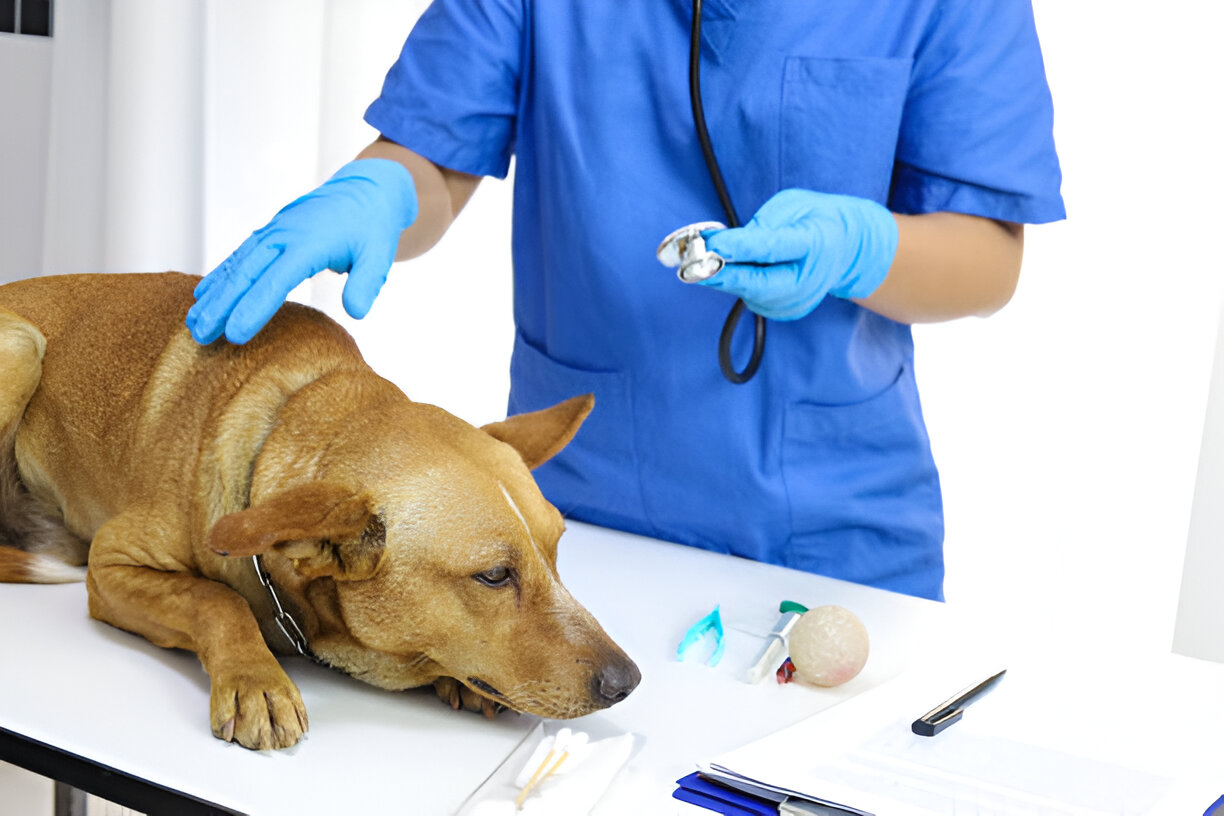Canine coccidiosis is a parasitic infection caused by single-celled organisms known as coccidia. These parasites primarily affect the intestines of dogs and can lead to a variety of health issues, especially in young, stressed, or immunocompromised animals. Coccidia thrive in environments that are warm and moist, and infection can occur in dogs of any age, though puppies and those with weakened immune systems are at a higher risk. Understanding coccidiosis is crucial for dog owners, as early detection and treatment can significantly impact a dog’s health and well-being.
Causes and Risk Factors
Coccidia are microscopic parasites that can be transmitted through contaminated food, water, or surfaces. Here are some common ways dogs can contract coccidia:
- Fecal-Oral Transmission: Dogs can become infected by ingesting oocysts (the infective stage of coccidia) present in the feces of infected animals. This is particularly a concern in environments where multiple dogs are present, such as parks, kennels, or dog shows.
- Contaminated Environment: Coccidia thrive in warm, moist conditions, making areas such as dog parks and kennels breeding grounds for the parasite. If a dog comes into contact with contaminated soil or surfaces, they can easily ingest oocysts.
- Poor Hygiene Practices: Inadequate sanitation, especially in multi-dog households or shelters, increases the risk of coccidia spreading. If feces are not cleaned up promptly and thoroughly, the risk of transmission rises.
- Stress and Immunosuppression: Stressful situations, such as changes in environment, illness, or overpopulation, can compromise a dog’s immune system, making them more susceptible to infection. Puppies are particularly vulnerable due to their developing immune systems.
Symptoms to Watch For
Recognizing the symptoms of coccidiosis is essential for prompt treatment. Common signs to watch for include:
- Diarrhea: This is the most noticeable symptom of coccidiosis. The diarrhea can be watery, mucoid, or bloody, and may occur suddenly.
- Lethargy: Infected dogs often exhibit a lack of energy and may seem less active than usual. They may also lose interest in play and other activities they typically enjoy.
- Vomiting: Some dogs may experience vomiting alongside diarrhea, which can exacerbate dehydration.
- Weight Loss: Chronic diarrhea can lead to weight loss, as affected dogs may not be able to absorb nutrients properly.
- Dehydration: This is a serious complication of coccidiosis due to the loss of fluids from diarrhea. Signs of dehydration include dry gums, sunken eyes, and decreased skin elasticity.
- Abdominal Pain: Dogs may show signs of discomfort, such as whining or a hunched posture, indicating gastrointestinal distress.
If you notice any of these symptoms in your dog, it’s crucial to consult a veterinarian as soon as possible for a proper diagnosis and treatment plan.
Treatment Options for Coccidia
If your veterinarian confirms a diagnosis of coccidiosis, they will recommend a treatment plan tailored to your dog’s needs. Common treatment options include:
- Medications:
- Toltrazuril: This medication is widely used to treat coccidiosis in dogs and works by disrupting the parasite’s life cycle, thereby reducing the severity of the infection. It’s typically administered once or twice, depending on the severity of the infection.
- Sulfadimethoxine: Another effective treatment, this sulfa antibiotic can help control coccidia infections by inhibiting their growth.
- Supportive Care: In addition to medications, providing supportive care is essential. This may include:
- Fluids: If your dog is dehydrated, your vet may recommend administering fluids, either orally or through injections.
- Diet: A bland diet may be suggested to help ease gastrointestinal upset. Gradually transitioning back to their regular diet is usually recommended once symptoms improve.
- Monitoring: Regular follow-up appointments may be necessary to ensure the infection is clearing up and to monitor your dog’s recovery.
Prevention Tips
Preventing coccidiosis is easier than treating it, and there are several proactive measures you can take to reduce your dog’s risk of infection:
- Good Hygiene: Regularly clean up after your dog, especially in shared spaces. Dispose of feces promptly to reduce the likelihood of contamination.
- Regular Vet Check-Ups: Schedule routine veterinary visits, including fecal examinations, to detect and address any potential parasitic infections early.
- Limit Exposure: Avoid taking your dog to areas where many other dogs frequent until they are fully vaccinated and healthy. This is particularly important for puppies and young dogs.
- Quarantine New Additions: If you adopt a new dog or puppy, consider quarantining them for a short period and ensuring they are healthy before introducing them to your other pets.
- Keep the Environment Clean: Regularly clean your dog’s living area, including bedding and toys, to minimize the risk of contamination.
Conclusion
Coccidiosis can be a serious health concern for dogs, particularly for puppies and those with compromised immune systems. Recognizing the symptoms early, understanding the transmission methods, and taking preventive measures can help protect your pet from this parasitic infection. Prompt treatment, including the use of medications like Toltrazuril and supportive care, is crucial for a successful recovery. As a responsible pet owner, staying informed about coccidiosis and maintaining good hygiene practices will go a long way in ensuring the health and well-being of your furry friend. By prioritizing your dog’s health and recognizing the signs of coccidiosis, you can help ensure a long, happy life for your canine companion.

